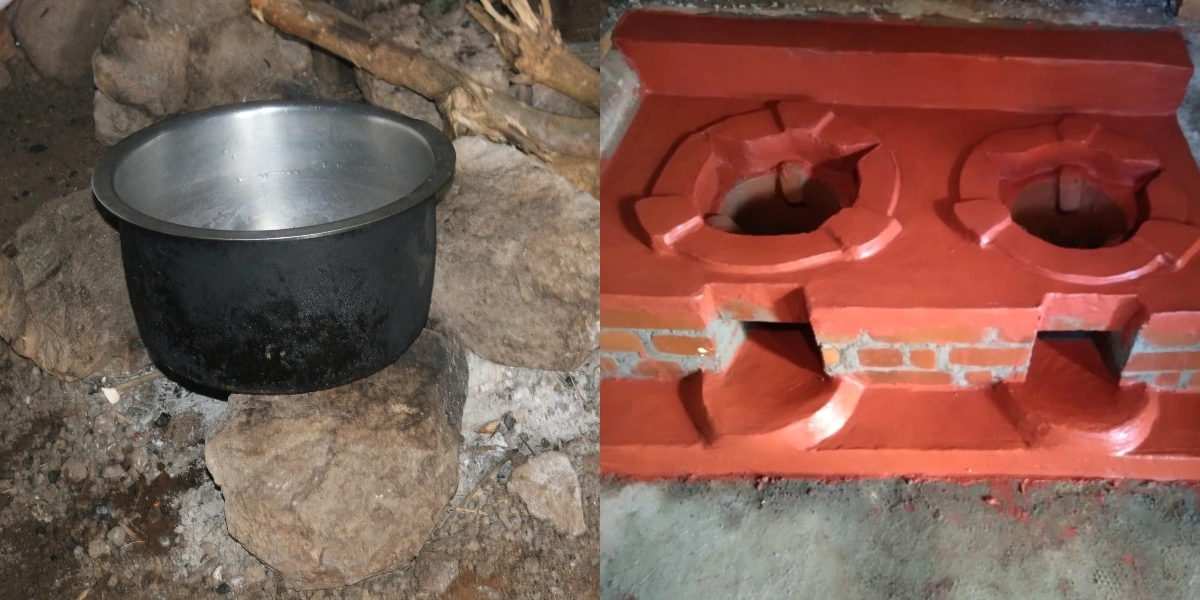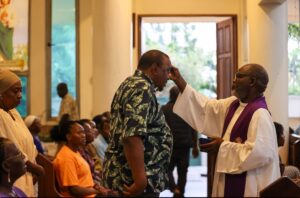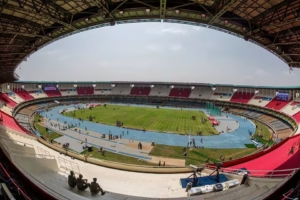Kakuzi PLC is renowned for its agriculture-enforced measures and contributions to the society around its premises currently launching the Jiko Kisasa.
Over the years, the agricultural farm has diversified its portfolio and now offers a range of products from offering Avocado, Macadamia, Blueberry, Tea, Livestock, and Commercial forestry.
Kakuzi situated in the Makuyu sub-county in Murang’a County has been at the forefront of empowering the locals around its vicinity through various projects.
The NSE-listed company is taking major steps in the conservation of the environment by replanting trees as well as encouraging the community at large through sensitization and mobilization programs to combat the climate change crisis.
Through this strategy, Kakuzi approached the German Agency for International Cooperation (GIZ) to facilitate training on the making of an energy solution dubbed “Jiko Kisasa” a cooking utility developed from the old school meko normally used in rural homes.
The improved firewood cooking stove is a better non-smoky cooking stove with double cooking places that not only make cooking efficient but also ease the use of firewood which in return reduces the smoke that’s emitted.
Since the introduction of the program in 2021, Jiko Kisasa has been a major step toward the promotion of alternative cooking methods that are clean, safe, economical, and energy-saving around Kakuzi.
The trainer, Mary Wanjiru is thankful that she is making an impact and Kakuzi continues to support her, to train the community through their Welfare groups on how to develop the Jiko Kisasa.
“Following my passion for the environment, I envisioned a way to touch lives in my community, and am thankful to Kakuzi for their support throughout the program. The skill is also transforming lives as it has become an income earner for the trainees who are now enabled to build for clients,” said Mary.
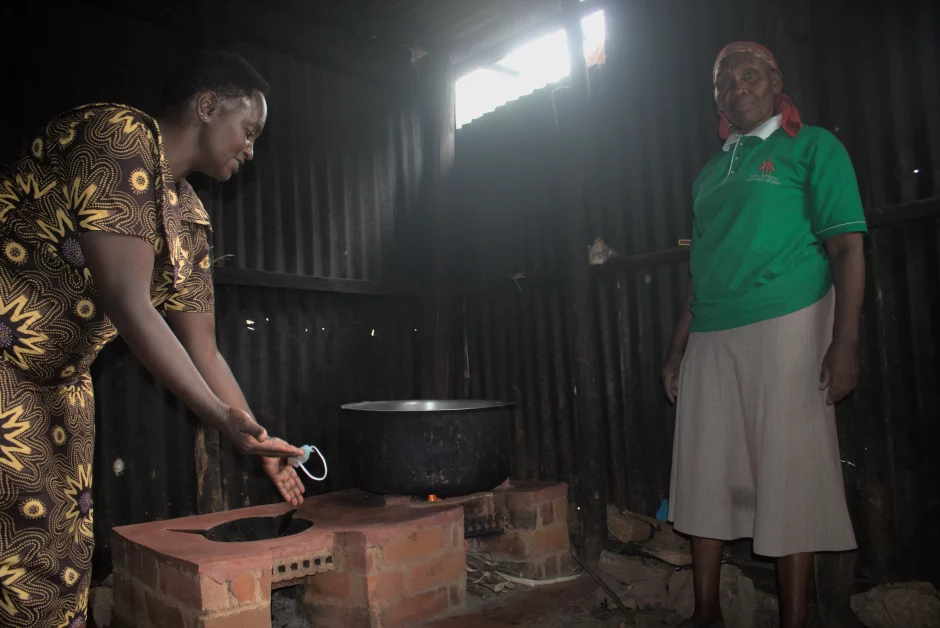
The rolling out phases highly entailed the provision of the Jiko Kisasa in households around the areas in Makuyu. The first phase, which was rolled out late last year saw 300 households receive a ready-to-use Jiko Kisasa which they embraced greatly.
Based on the reception among the locals, Jiko Kisasa has been lauded as a better means of cooking and as such there was an increased urge to acquire this jiko among the locals.
A move further influenced Kakuzi PLC to develop a program foreseeing the rolling out of the second phase of installations that commenced on the 7th of July.
According to the community relations officer, Rachael Karimi, the program is beneficial healthwise for families, as well as for the men, women, and youth trained who consider this as an alternative source of income.
“This initiative is aligned with a pilot we conducted that involved the community members. After seeing the process and difference in performance, they were eager and willing to be a part of it. It has not only assisted to reduce smoke caused diseases but also eased the budgeting for their firewood purchases,” said Rachael.
The second phase rollout was done in three hundred households equipping them with the installations in their kitchen setups and bringing the total to 600 households’ beneficiaries with the Jiko Kisasa.
With the energy-saving Jikos, the users claim improved lives as it reduces the number of times, they have to source firewood, exposure to smoke due to its low emissions, and shortening cooking time.
“I have reduced the number of times I go to the hospital as was a norm earlier. Jiko Kisasa is less smoky and my eyes no longer itch unlike what I used before. Concerning the firewood budget, I use Kes200 worth of firewood for two weeks while the old cooking stove would elapse the firewood in two days at most four. This jiko has eased my cooking as it is efficient and my food vending business has grown immensely. Thanks to Kakuzi, Jiko Kisasa is the new norm,” said Hellen Mumbi.
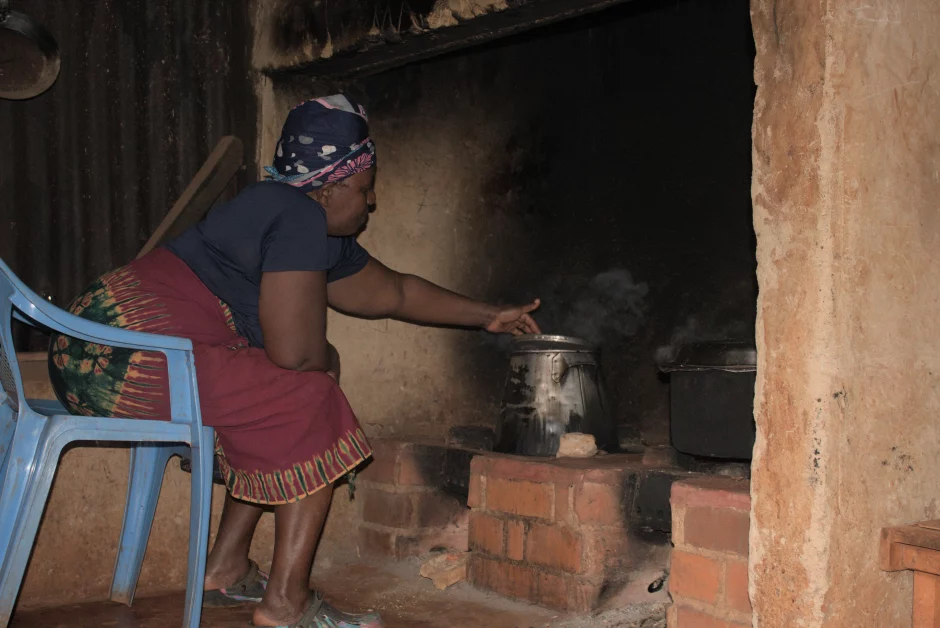
Besides distributing the jikos to several households, Kakuzi, in partnership with the GIZ has also facilitated the training of community members on energy-saving jiko installation with the 1st phase and the 2nd phase had 41 builders trained..
Kakuzi rolled out this initiative with an aim to transform the lives of the society, equipping them with skills and empowering the women to adopt a new means other than the ‘Meko’.
A call by Kakuzi is for everyone to take part in conserving the environment by planting trees as we stride to a safer global warming-free future, embracing the environment reviving measures is the way.
About the Author
Kwabe Victor
Contributor
Multimedia Journalist. Aspiring documentary/Investigative journalist, currently immersed in writing Political, Business and Human Interest Stories. Speak Life.


